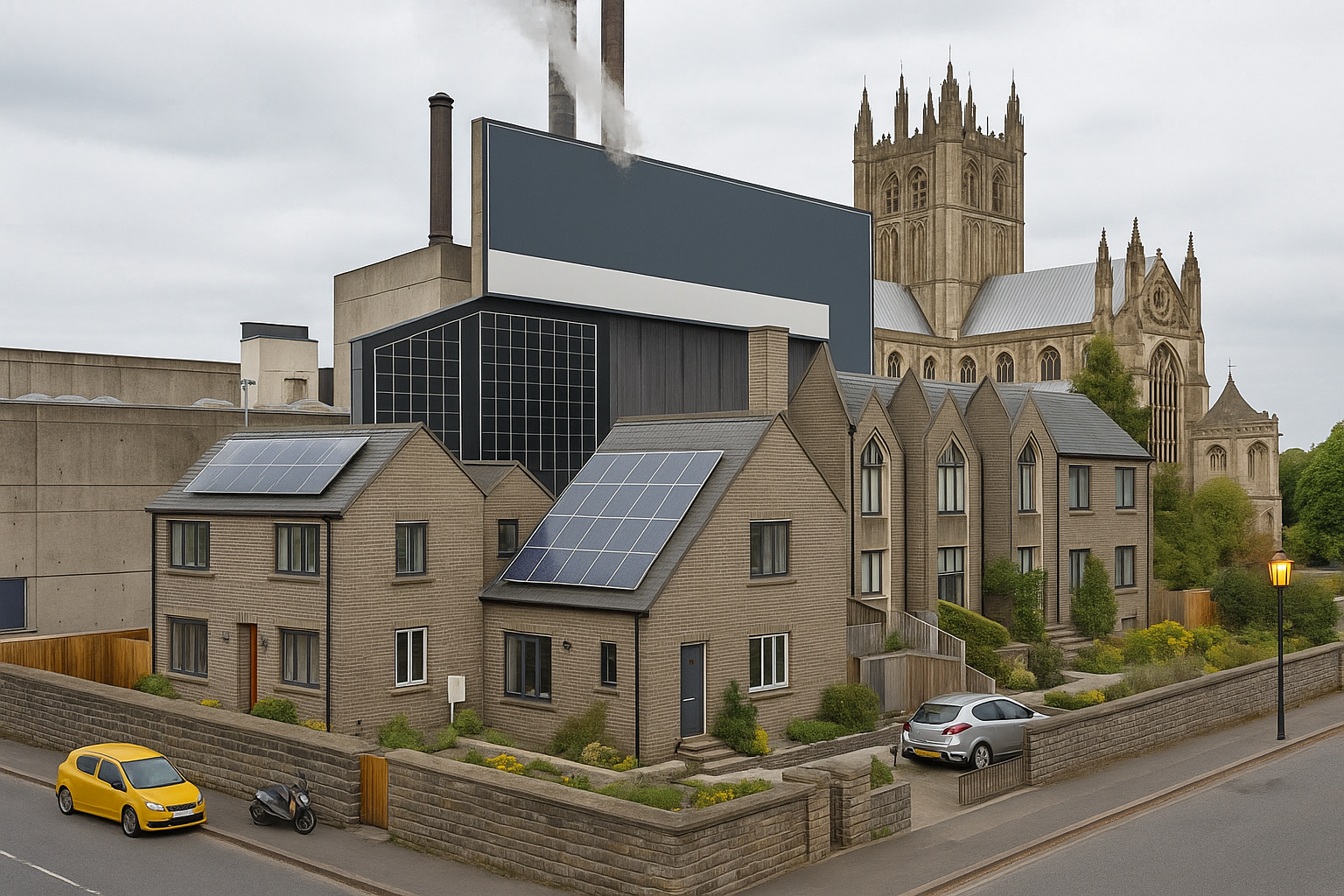Why You Need a Qualified New Build SAP Assessor for Your Project
Building a new home or development in the UK is a big job with many steps. One step you cannot skip is hiring a qualified SAP assessor. Without the right person or team to handle your SAP calculations, your new build could face delays, added costs or even fail to meet the standards set by building regulations.
At Ratio Seven, we work closely with clients on projects of all sizes to make sure SAP compliance goes smoothly from start to finish. Whether you are putting up a single house or managing a bigger development, we are here to help every step of the way.
What Is a SAP Assessor?
SAP stands for Standard Assessment Procedure. It’s how the UK government checks how much energy a building will use. A SAP assessor uses plans, materials and other design details from your architect to figure out your home’s expected energy usage and carbon emissions. We then provide the required SAP report, which you’ll need to pass your Building Control checks and get an EPC (Energy Performance Certificate).
Without a qualified SAP assessor, you could end up guessing rather than knowing how your building performs against the rules. The last thing anyone wants is to start building and find out partway through that the design won’t meet Part L building regulations.
We know this process inside and out. At Ratio Seven, we’ve supported hundreds of developers, builders and homeowners across the country with their SAP reports.
When Should You Get a SAP Assessor Involved?
You should bring in a SAP assessor as early as possible. Ideally, this should happen once you have your detailed house plans, but before construction begins. This gives you time to make any design changes that may be needed to meet the rules for energy and heating performance.
If you leave it too late, fixes can be more expensive or, worse, impossible without starting over. A qualified SAP assessor will make sure that what you plan to build ticks every box for SAP requirements.
We often see people coming to us after they’ve already started building. They’re sometimes shocked to find out their plans don’t meet regulations. We help where we can, but it’s so much better to catch all of this at the very beginning.
What Do SAP Calculations Cover?
SAP calculations look at every part of the building that affects how it uses energy.
Some of the biggest parts include:
- Type and thickness of insulation in the walls, floors and roof
- Heating systems and hot water setup
- Type of windows and the amount of glazing
- The ventilation method, whether natural or mechanical
- Use of renewables like solar panels or air source heat pumps
We work through all of these with house designers to check where they might need changes to meet targets. Every calculation is based on the exact details of your build, which means accuracy matters.
If you want to dive deeper into how these numbers work, you can check out our service for SAP calculations for new builds. We walk through exactly what we do at every step so you always know what’s going on.
The Steps to Getting SAP Compliance for a New Home
There are key stages in any SAP assessment. We break them down simply for everyone we work with. Here’s what to expect:
1. Initial Design Review
We start by reviewing floor plans, construction details, heating design and insulation levels. From this, we input details into SAP software to get a picture of how the building should perform once completed.
2. SAP Calculations
Next, we provide your SAP rating along with recommendations. If your planned build doesn’t pass Building Regulations, we’ll tell you where changes can be made to improve it. This can include better insulation, upgraded windows or a new heating system.
3. Submission to Building Control
Once everything adds up, we send you the SAP report you need to submit to Building Control. This is normally required before construction begins.
4. SAP As-Built and EPC
After your home is built, we check to make sure the final version matches what was planned. Then we update the SAP calculation to reflect the completed project and produce your EPC. This is the document that shows your home can be sold or rented legally.
Through our SAP assessor service, we provide both the Design Stage and As-Built SAP reports, making your life easier from start to finish.
How to Know If Your SAP Assessor Is Qualified
We’ve heard from people who came to us after finding out the person who did their SAP work wasn’t fully trained. You don’t want that. All SAP assessors should:
- Be accredited by a proper Certification Body such as Stroma, ECMK or Elmhurst
- Use official BRE-approved SAP software to produce calculations
- Understand everything covered by Part L of the building regulations
- Be able to provide accurate advice that matches current guidance
Every member of our team at Ratio Seven meets these checks. We don’t cut corners. If you are spending thousands building a new home, trusting the right SAP assessor is a no-brainer.
What Makes Ratio Seven the Right Choice?
We’re not a big faceless company. We’re a small team based in the UK, working hard to give every client personal service. We answer your questions fast and explain things in plain English. There’s no upselling or confusing payment plans. You can see exactly what we do and how much it costs.
With Ratio Seven, you won’t get a SAP report with no advice on how to fix problems. We go through your results with you and talk about real solutions. If your U-values are off or your predicted CO₂ emissions are too high, we help adjust design choices to bring them in line.
Whether you’re a small developer or building your dream home, we guide you clearly from the start. And once the build is finished, we make sure you leave with a complete and accurate EPC that passes all checks.

What Happens If You Skip SAP Calculations?
Skipping a SAP assessment is risky. Without that key report, Building Control won’t know whether the property meets Part L of the building regulations. You won’t get a completion certificate. That means you can’t legally rent or sell the property.
You could also miss the chance to reduce running costs. A well-rated home costs less to heat and run. If your SAP rating is low, it can mean cold rooms, costly energy bills and less value on the housing market. Buyers and renters are getting smarter and often ask to see the EPC before they agree to anything.
So, losing out on a proper SAP assessment can hurt now and later. At Ratio Seven, we stop that from happening, giving you what you need for both success and peace of mind.
FAQs
Do self-built homes need SAP calculations?
Yes, all new homes in the UK, including self-builds, need them to meet Building Regulations.
Can I do my own SAP assessment?
No. You must use a qualified SAP assessor who is trained and officially recognised by a certification body.
What if the design doesn’t pass the SAP test?
We suggest improvements, such as thicker insulation or better windows, to make sure the home meets targets the second time around.
How long do SAP calculations take?
If your paperwork is ready, we can turn around reports within a few working days for most new builds.
Is an EPC needed after building?
Yes, an Energy Performance Certificate is needed to sell or rent the home, and it’s based on the updated SAP calculations from the building’s final version.
Ready to Get Your New Build Assessed?
Building a new property in the UK comes with its challenges, but also great rewards. Making sure your project meets SAP standards is more than ticking a box. It’s about creating a warm, energy-smart space that adds long-term value.
We handle SAP calculations for new builds with care, speed and full support. Whether it’s your first home or your latest development project, we’d love to help.
You can learn more about what we offer and how we work by visiting Ratio Seven. Ready to get started? Drop us a message or give us a call today.
Let’s get your project moving the right way.




